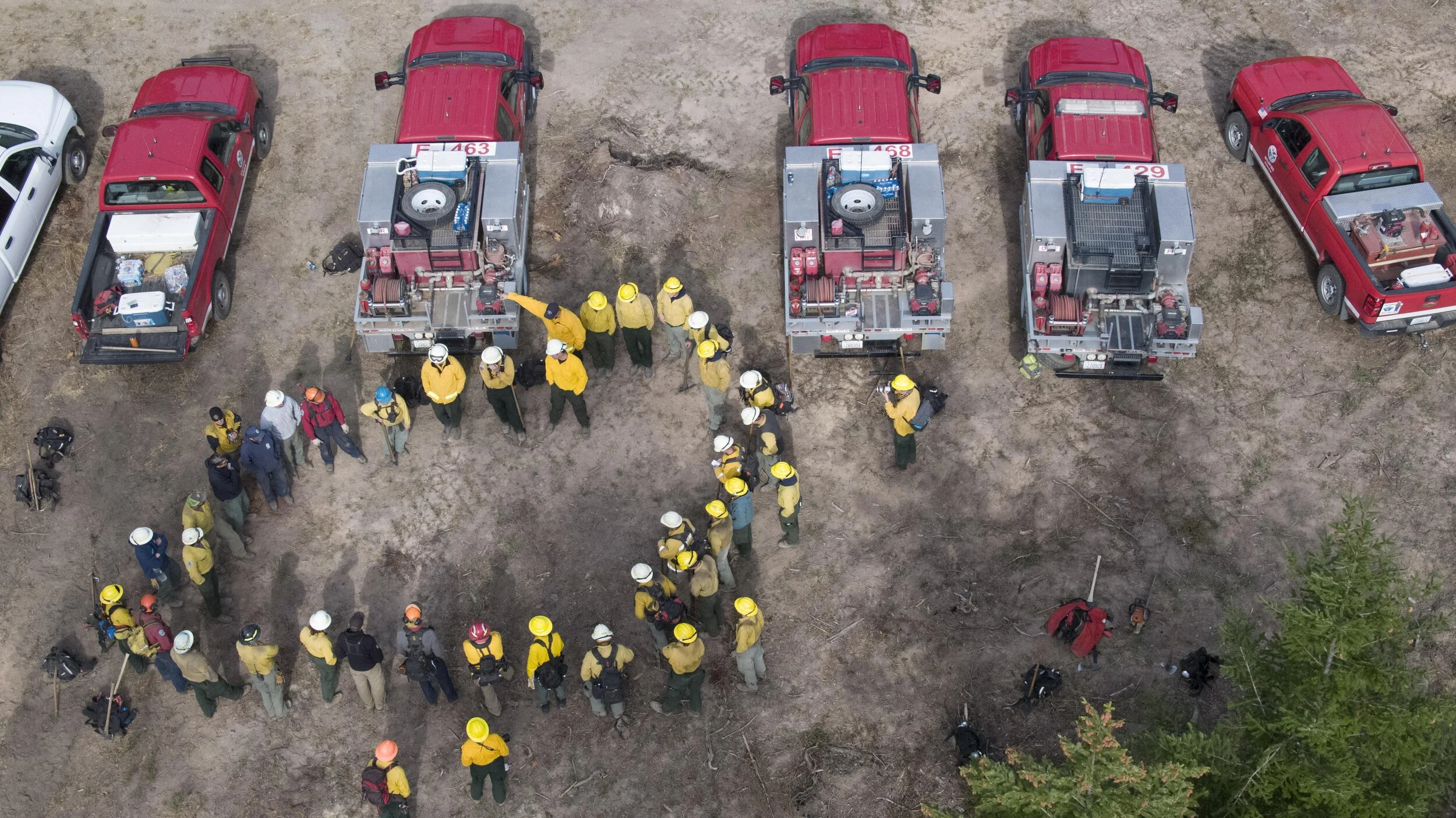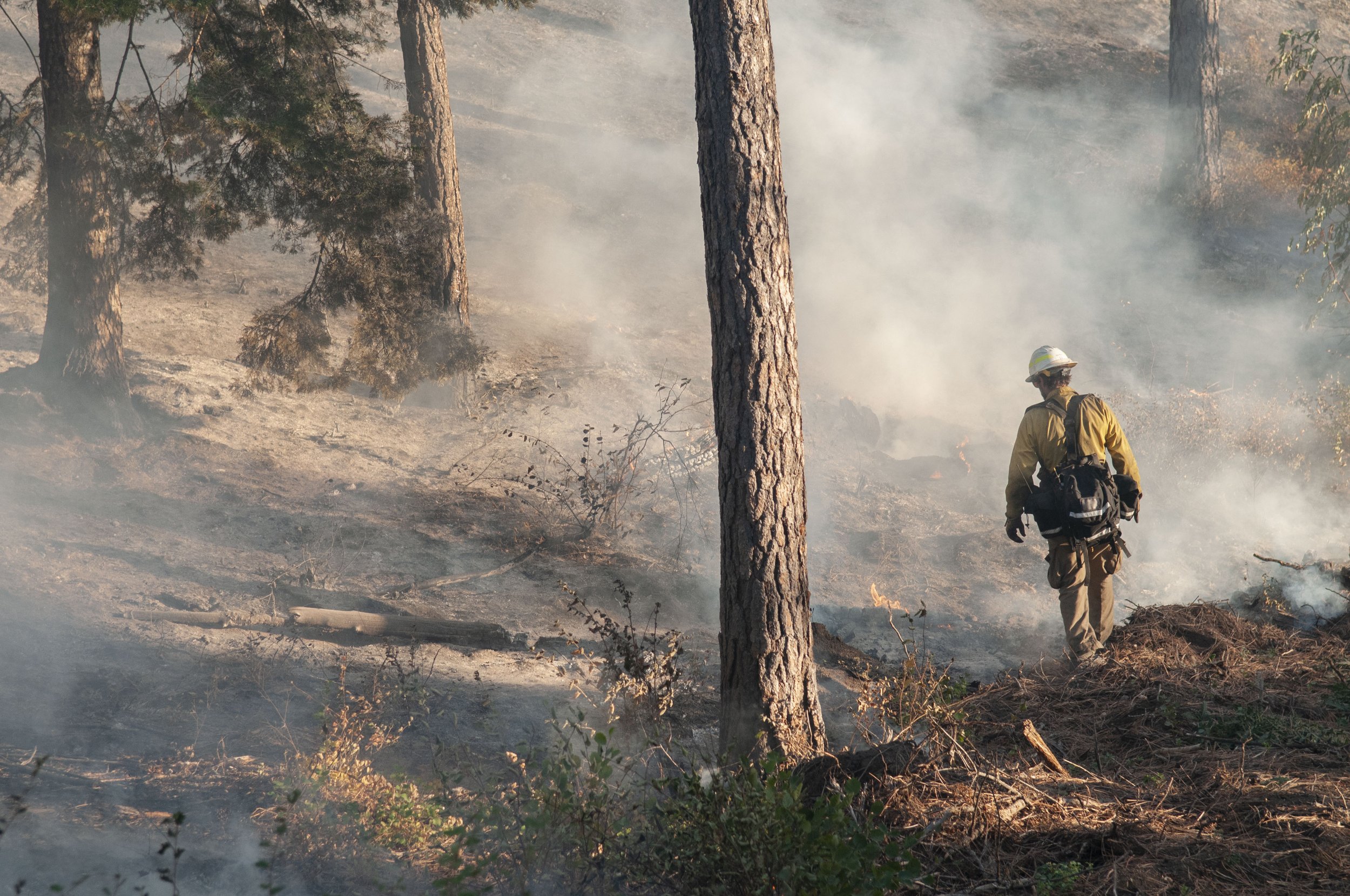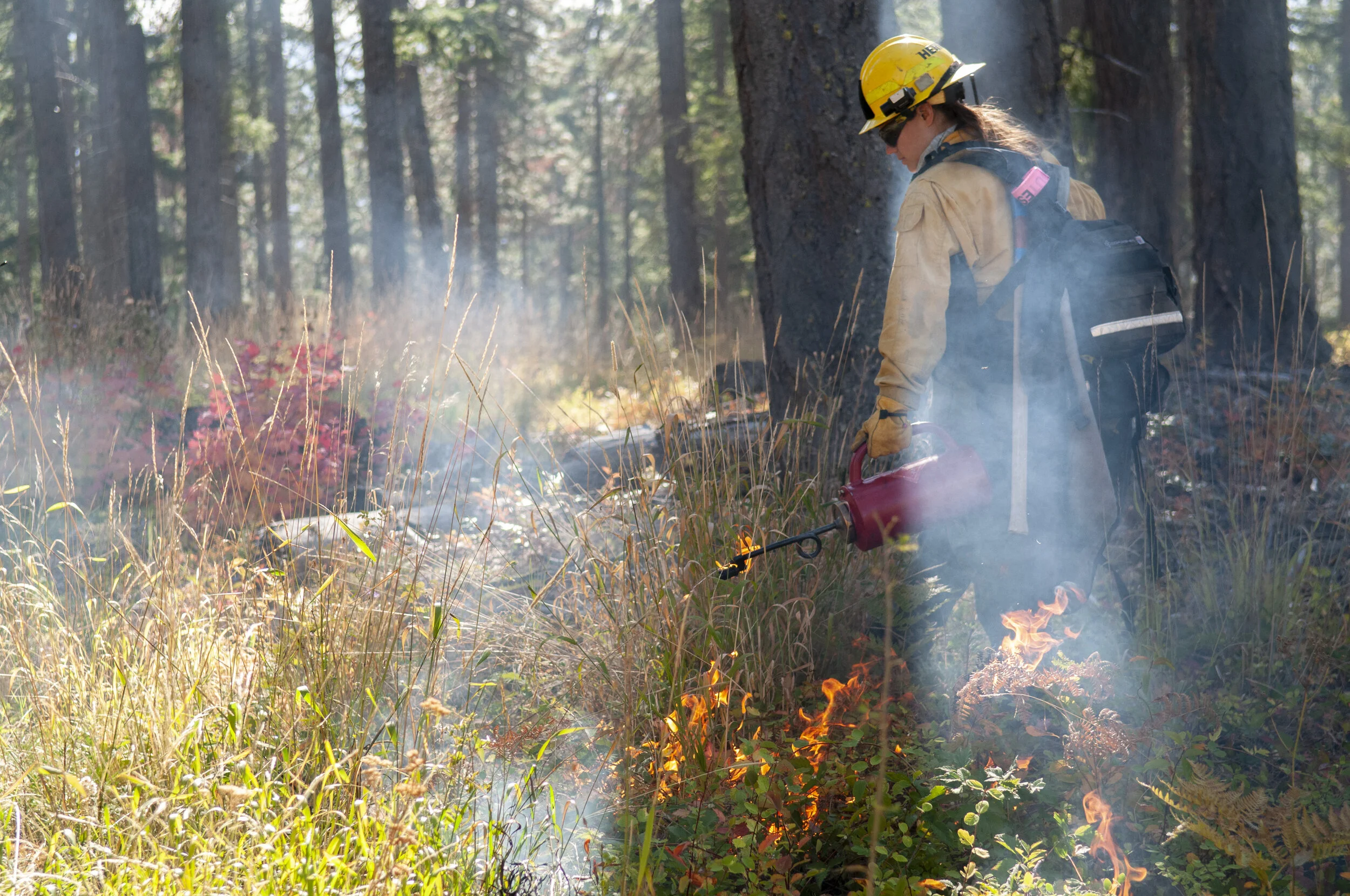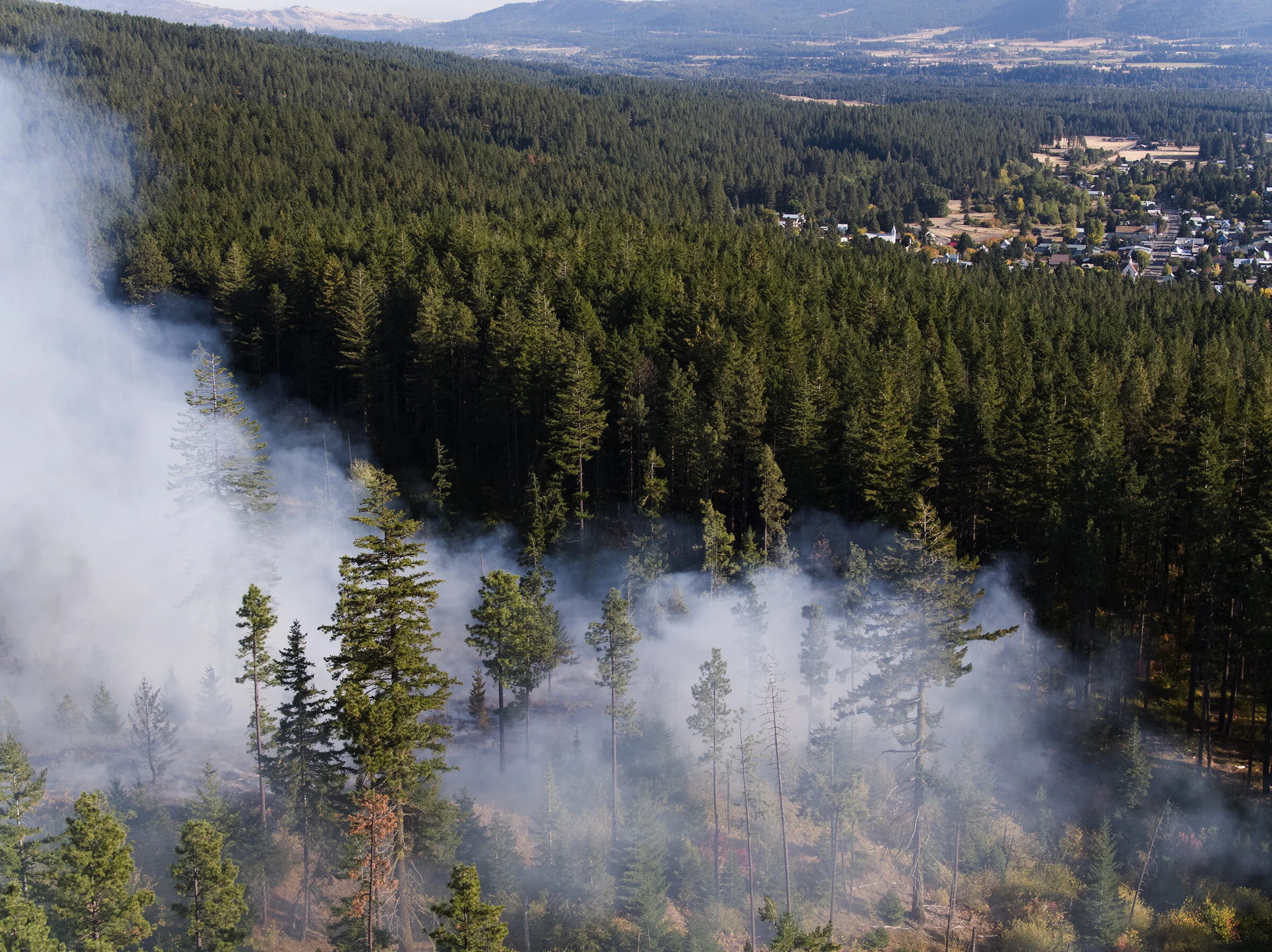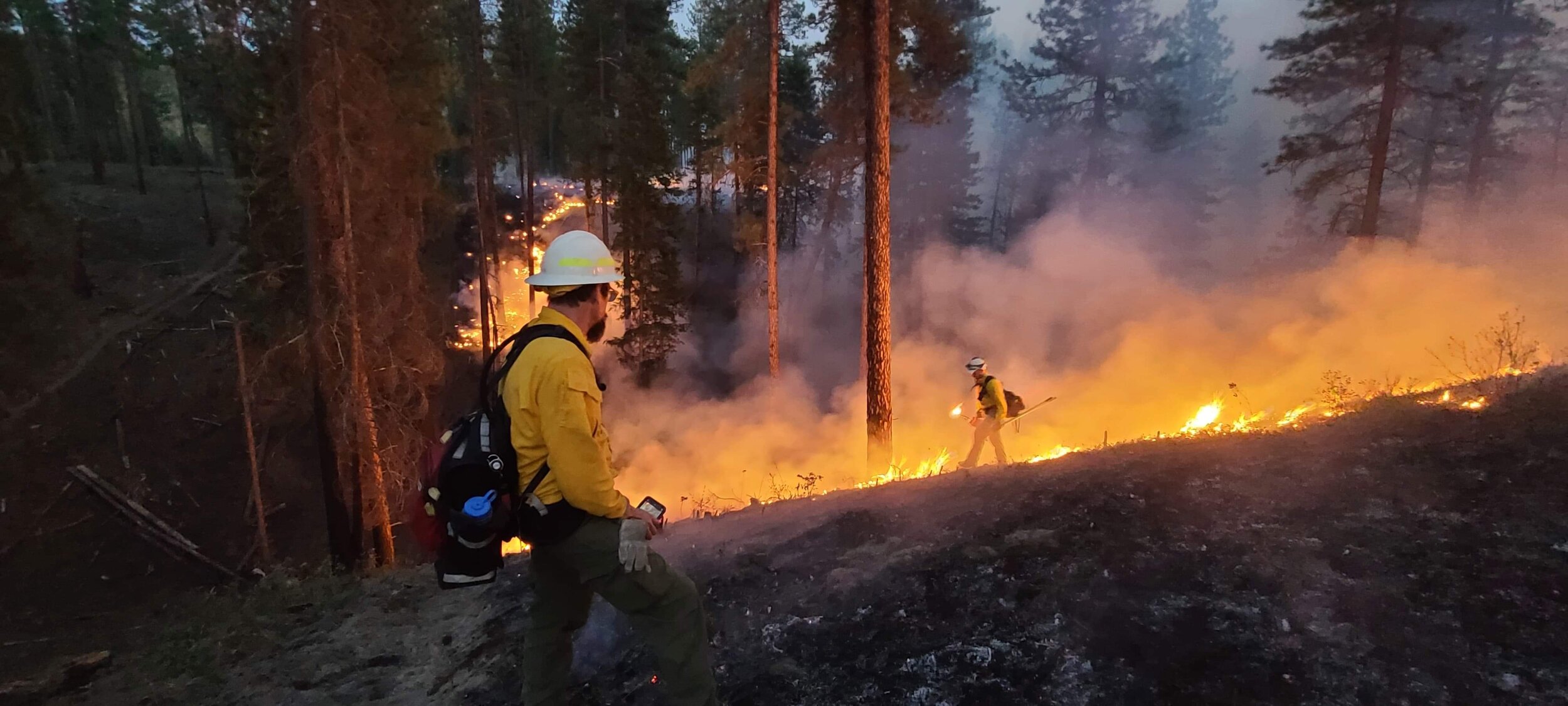We are facing mounting societal costs from wildfires, from tragic loss of life, to property destruction, increasing firefighting costs and health impacts from smoke. Severe wildfires are also harming nature’s ability to support people, by damaging the forests that filter our drinking water, sequester carbon and support rural economies.
Support Resilience Today
Click the button to send your senator and representatives a message of support for dedicated wildfire resilience funding.
Climate change—including higher temperatures, drought and lower humidity—compounds the problems. By midcentury, the western United States is expected to have two to six times more damaging wildfires than we are experiencing today.
The above photo of a forest in the Sinlahekin Wildlife Area shows the benefits of prescribed burns. On the left is a part of the forest that was thinned and sustained significant damage from the Lime Belt Fire in 2015. The right side of the photo shows an adjacent area that had tree thinning and prescribed burns completed by the state Department of Fish and Wildlife in 2014, which minimized fire behavior and damage from the Lime Belt Fire. © Jason Haug
To keep people and nature healthy, we must rethink our current approach to living with fire, which is clearly not working. A legacy of prioritizing putting out fires as quickly as possible has effectively removed fire’s natural role from our landscapes and has led to a buildup of flammable material that fuels more destructive fires. We must drastically increase prescribed burning to help restore balance in fire-dependent ecosystems, and we must support communities in adapting to their fire-prone environments. We must make investments in proven solutions that keep our communities safe.
To this end, we support current efforts in the Washington Legislature to create a designated fire funding source to directly support forest-health treatments, help communities become fire-prepared and increase funding for firefighting equipment and personnel to help fight the large, destructive fires we’ve seen in recent years.
House Bill 1168 seeks to protect Washingtonians on both sides of the Cascades from ever-increasing wildfire risk by establishing a dedicated forest health and wildfire preparedness account to help us get ahead of the problem. The bill includes an increased focus on and proposed funding for community preparedness, and we hope that efforts like the Washington Fire Adapted Communities Learning Network will benefit more from this designated fund in future years.
We need your help to keep this bill moving through the Legislative process as it evolves, and as lawmakers consider many competing, urgent priorities. You can share your position on this bill with your senator and representatives by filling out a short form on the Legislature’s website.
Thank you for supporting community and forest resilience in Washington!

